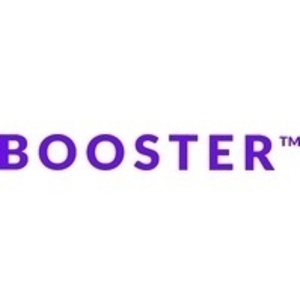Booster expands renewable diesel offerings in California

September 21, 2022
BY Booster
Recognizing fleet customers' growing demand for lower-carbon energy sources, Booster, the leading tech-driven mobile energy delivery company, announces that it has expanded its renewable diesel product offering to three new markets in California. The move enables nearly 50 Booster-fueled fleets in Sacramento, San Jose and San Diego — totalling nearly 1,000 fleet vehicles serviced daily — to slash their greenhouse gas (GHG) emissions by up to 70 percent.
This expansion marks a major milestone: With the transition of these fleet vehicles to renewable diesel, Booster has converted nearly all its diesel-powered fleet customers in California to sustainable alternative fuel, reflecting the company's commitment to continuously upgrading its product offerings to meet growing demand for cleaner energy solutions. With the addition of these new markets to Booster's existing renewable diesel offerings in Orange County and the San Francisco Bay Area, the mobile fueling company now offers renewable diesel in a total of five major locations.
Advertisement
Advertisement
Renewable diesel is made from biomass and categorized by the U.S. Department of Energy as an emerging alternative fuel that can significantly reduce a diesel fleet's lifecycle GHG emissions while still maintaining high performance. Renewable diesel can also blend with traditional diesel fuels, allowing users to easily transition back and forth between fuel sources. It requires no modifications, upgrades or changes to the equipment, vehicles or service provided.
"Renewable diesel offers an immediate solution for fleets that are looking to decarbonize their operations without sacrificing performance, or requiring expensive equipment or infrastructure modifications or upgrades," said Frank Mycroft, Booster CEO and founder. "By expanding service to these major markets in California, Booster has made significant progress in helping our fleet customers make good on their sustainability and decarbonization goals."
Advertisement
Advertisement
Booster currently offers a renewable diesel primarily through a strategic partnership with Renewable Energy Group (REG), a leading producer and provider of renewable diesel, biodiesel, and blended fuels (REG was acquired by Chevron earlier this year). The partnership, which makes Booster one of the first mobile energy delivery companies to secure a consistent supply of next-generation renewable diesel products, provides customers with broader access to lower-carbon fuels. Currently, out of about 145,000 gas stations in the U.S., only 6,003 carry alternative fuels (including compressed natural gas, ethanol, biodiesel and hydrogen) — fewer than 0.5 percent.
Related Stories
Calumet Inc. on Aug. 8 confirmed its Montana Renewables biorefinery is currently running at full capacity. An initial phase of the company’s MaxSAF initiative remains on track to boost SAF capacity to up to 150 MMgy by mid-2026.
Marathon Petroleum Corp. on Aug. 5 released second quarter financial results, reporting improved EBITDA for its renewable diesel segment. The company primarily attributed the improvement to increased utilization and higher margins.
Chevron Corp. on Aug. 1 confirmed the company started production at the Geismar renewable diesel plant in Louisiana during the second quarter after completing work to expand plant capacity from 7,000 to 22,000 barrels per day.
The public comment period on the U.S. EPA’s proposed rule to set 2026 and 2027 RFS RVOs and revise RFS regulations closed Aug. 8. Biofuel groups have largely expressed support for the proposal but also outlined several ways to improve the rulemaking.
In celebration of World Biodiesel Day, MOL Group on Aug. 8 announced SAF was successfully produced for the first time at INA’s Rijeka Refinery during a pilot project to process biocomponent. Renewable diesel was also produced.
Upcoming Events










